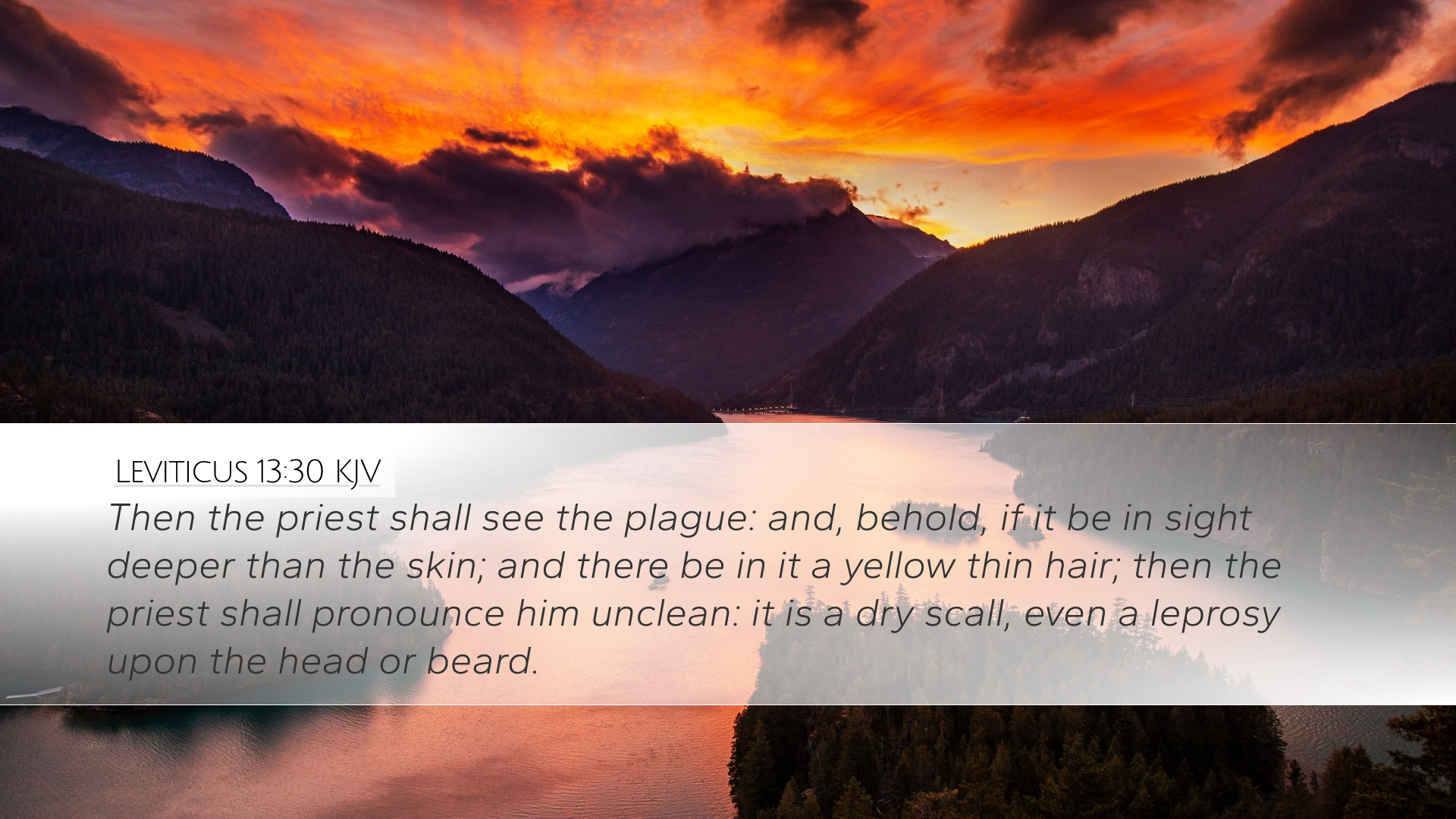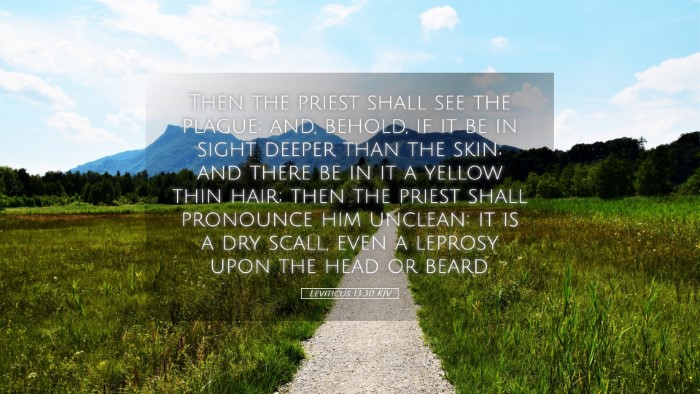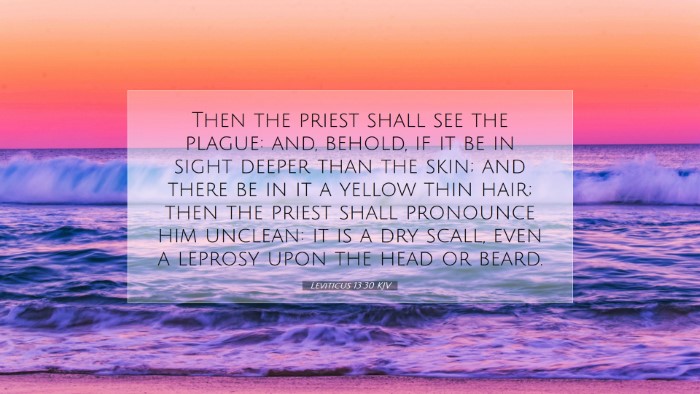Commentary on Leviticus 13:30
Bible Verse: Leviticus 13:30 - "Then the priest shall look at the plague; and behold, if it be in the skin of his flesh, and it is white, it is a leprosy, and the priest shall declare him unclean."
Introduction
The passage of Leviticus 13:30 addresses a critical aspect of the ancient Israelite ritual purity laws, particularly concerning skin diseases, often interpreted as leprosy. This commentary will explore the theological implications, historical context, and practical applications of this verse drawn from esteemed public domain commentaries.
Historical Context
This verse is part of a larger regulation in Leviticus that outlines procedures for identifying and managing skin diseases among the Israelites. The priest serves as a crucial figure in this process, tasked with evaluating the condition of those afflicted. Albert Barnes emphasizes the social and spiritual ramifications of being declared unclean, which often led to isolation from the community.
The Role of the Priest
Matthew Henry notes that the priest is not merely a health official but a spiritual leader in the community. He acts as a mediator between God and the Israelites. The status of being 'clean' or 'unclean' had broader implications than health, impacting the person's relationship with God and the community. The priest’s judgment was essential in maintaining the holiness required in God's covenant people.
Criteria for Uncleanliness
In this verse, the priest examines the skin for specific signs of leprosy. Adam Clarke elaborates on the visible indications that permitted the priest to declare an individual unclean. He points out that the white appearance in the skin is a critical sign triggering the priest's assessment. This highlights how visible signs of disease serve as indicators of deeper spiritual and social issues.
Theological Implications
The declaration of a person as unclean has profound theological significance. This act is not arbitrary but reflects God's holiness. According to Matthew Henry, God's people are called to be holy as He is holy, and any affliction, particularly those visible to the community, signifies a need for recognition, repentance, and often a thorough examination of spiritual health.
Understanding 'Leprosy'
In interpreting the term 'leprosy,' it is important to understand that the conditions described may not correspond directly to modern leprosy (Hansen’s disease). Albert Barnes suggests that this term encompasses a range of skin afflictions which can affect an individual’s social standing and divine favor.
Practical Applications for Modern Believers
Despite the historical context of this scripture, there are several applications for today’s believers:
- Spiritual Cleanliness: Just as physical afflictions were scrutinized, spiritual health must be examined regularly. Self-reflection and accountability within the community are crucial.
- Community Responsibility: The involvement of the priest signifies a communal responsibility toward those in distress. It reminds believers of their duty to support one another both physically and spiritually.
- God’s Holiness: The passage emphasizes God’s nature and His expectations for holiness among His people. Believers are encouraged to pursue purity in their lives.
Conclusion
Leviticus 13:30, rich with historical and theological weight, reminds readers of the seriousness of purity in God’s sight and the community's role in recognizing and addressing spiritual and physical afflictions. The insights from Matthew Henry, Albert Barnes, and Adam Clarke provide a multifaceted understanding that remains vital for pastors, students, theologians, and scholars today. As God's people, it is imperative to maintain a life of holiness and encourage one another in the faith.


